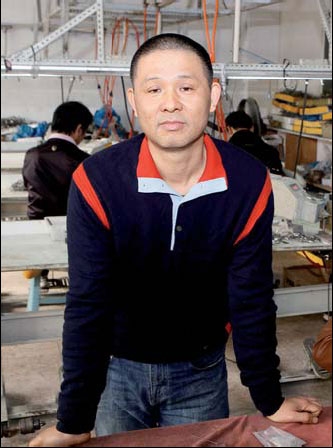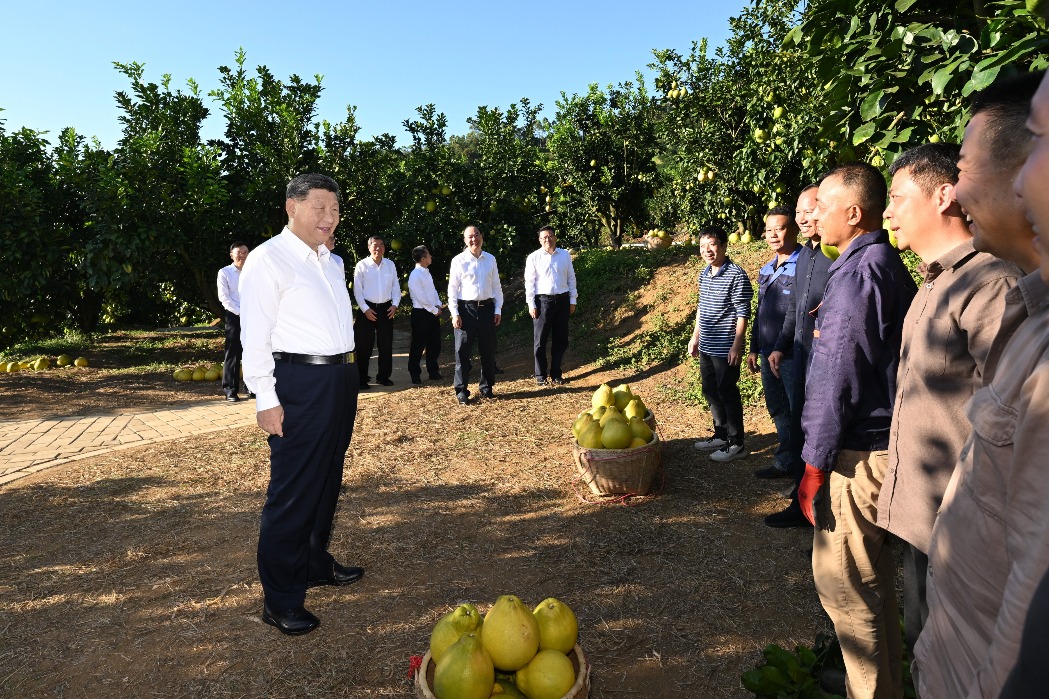Big problems for small players

Lack of funding, bleak market prospects queer the pitch for companies
Jiang Tianzhong is the typical example of a small spectacle manufacturer from Wenzhou who is battling the odds for survival in a bleak market for eyeglasses.
|

Jiang Tianzhong, general manager of Wenzhou Sunstorm Optical Co Ltd. [Yong Kai / for China Daily]
|
The 46-year-old founder and general manager of Wenzhou Sunstorm Optical Co Ltd had to close two of his workshops and lay off nearly three-fourths of his employees last year due to the uncertain market conditions.
"It is probably the most difficult period I have ever experienced in my life," Jiang says, in his simple office, which has just one small desk and four chairs.
Ye Xuebo, 28, president of Wenzhou Yuanyang Optics Co Ltd, also admits that cold winds are sweeping through the spectacle manufacturers in Wenzhou.
"Most of the spectacle manufacturers here are small- and medium-sized companies, which do not have sufficient capital to move up the value chain. Most of them are reliant on the OEM business," Ye says.
Jin Zhimian, 31, the president of Wenzhou Jinkang Optics, feels that small spectacle companies have been the hardest hit by the funding crisis in Wenzhou.
"It is common knowledge that small spectacle makers do not have the cash to purchase raw materials. Before the funding crisis, we could pay the raw material costs after we sold our products," Jin says.
"But now, there is a lack of trust between the suppliers and the manufacturers. The suppliers believe that if they do not get the cash in advance, the manufacturers might collapse and they won't get paid. So they are insisting that we procure raw materials with cash payments. This has made our cash flows precarious."
"It is hard for most of the small manufacturing companies to raise money from the local banks and hence most of them have to take the help of relatives and friends, and in some cases even the private lenders," he says.
"Returns from traditional manufacturing industries like making spectacles are not enough to pay back the exorbitant interest charged by the private lenders. This is what has led to the collapse of many small businesses."
Jin says that the situation was at its worst in November when nearly one factory closed every day in the industrial park where his factory is located.
"It is no exaggeration. The situation is far gloomier than what the outsiders think," Jin says.
Ye, however, feels that, though the situation is bleak for small companies, it is also an opportune time for the entire industry.
"For some big companies, this situation offers opportunities for them to merge and acquire some suitable small companies to expand their business scale. This will helps in further consolidation of the industry," Ye says, admitting that he is planning to buy some small companies.
Set up in 1955, Yuanyang Optics has more than 1,200 employees and achieved sales of 130 million yuan last year, mainly from the manufacture of high-end glasses.
Jiang still remembers the "good old days" of the 1990s, when there were just a few manufacturers in Wenzhou, basically original equipment manufacturers.
Cherishing the goal to set up his own business, Jiang left Aodi Optics Co Ltd, where he worked for more than 10 years, and established Sunstorm Optics in 2007 before the beginning of the global downturn. Then, everything changed.
Challenges like the rising yuan, shrinking global market and higher labor costs have also queered the pitch for small companies, Jiang says.
"Since the technology barrier to enter this industry is rather low, there have been more and more competitors," he says.
"Doing OEM work will give us negligible profits of around $1 (0.75 euros) for each pair of spectacles. We are lucky if we can make both ends meet considering the bleak global market."
Jiang says that to save expenses, he even sleeps in the factory. His plant is located in a dusty and crowded road called Jinan Road in the Nanbaixiang village of Wenzhou. A lot of small spectacle manufacturers dot the road.
"Last year, I got up at 6 am and went to bed at 12 pm almost every day, devoting my entire day for the factory development. Yet the returns have been meager," he says.
Starting off with more than 80 employees at the beginning of 2011, Jiang has now seen his staff strength fall to 18. What makes Jiang even more disappointed is that Aodi Optics, his former employer, has closed shop with his former boss seeking greener pastures in other businesses like real estate.
"The president of Aodi once told me that it was not profitable to do eyeglasses manufacturing. With so many challenges, I had even toyed with the idea of exiting the business. But I am not willing to do that," Jiang says.
"I don't want to be a coward who gives up due to some obstacles. Yet I have nothing to do but wait for the market to recover gradually."
Today's Top News
- China releases white paper on low-carbon development
- What use are the humanities in the age of AI?
- Cameroon president congratulated on re-election
- Xi attends carrier's commissioning
- Drive to be powerhouse in sports championed
- Strong growth in nation's exports despite headwinds





























